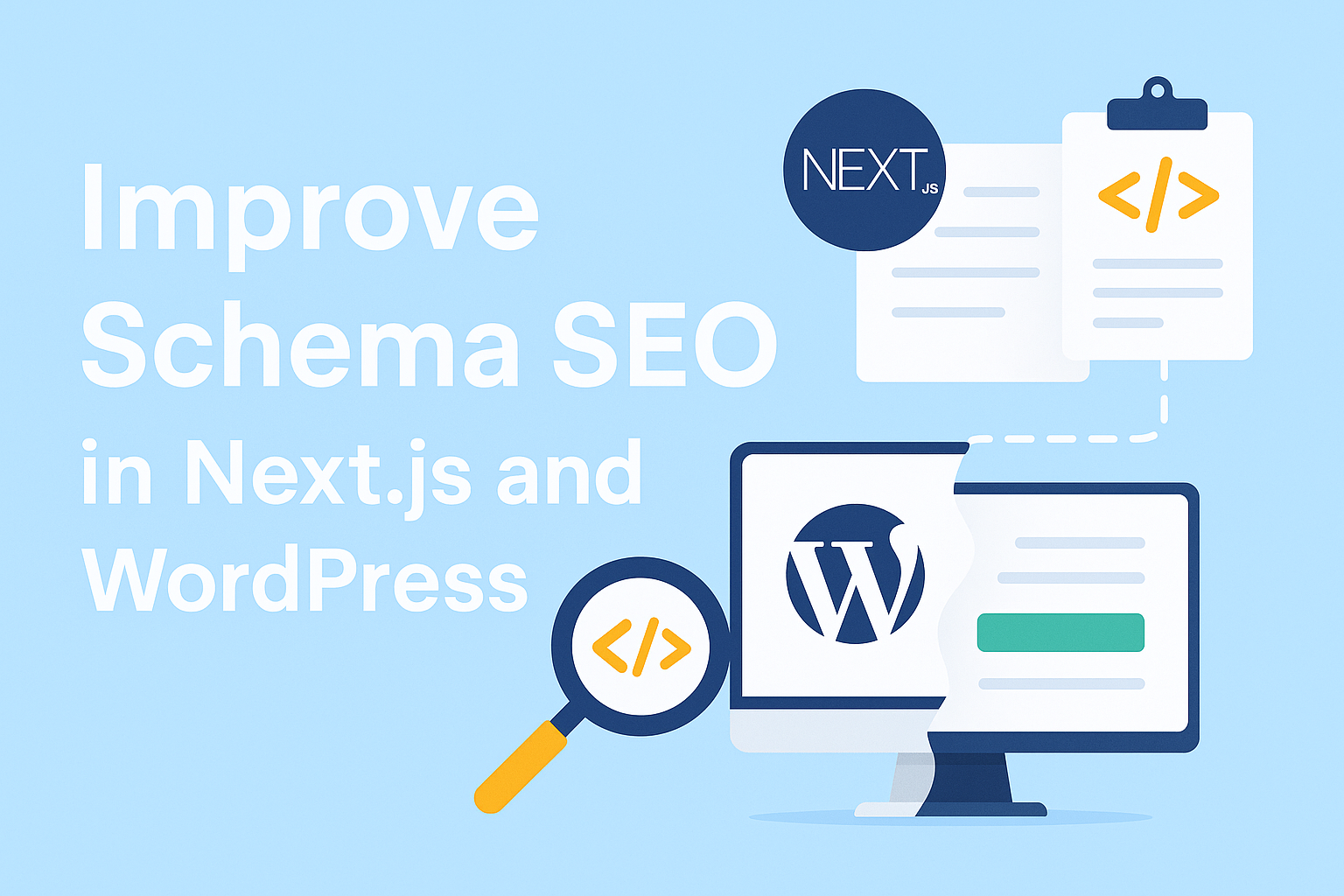Improve Schema SEO in Next.js and WordPress (With Code Examples)

Search engines like Google love structured data. By adding Schema.org markup to your site, you help search engines understand your content better—leading to better visibility and higher click-through rates.
In this article, we’ll cover how to improve your Schema SEO using both Next.js and WordPress, complete with examples.
What is Schema SEO?
Schema markup (structured data) helps search engines display rich results—think star ratings, FAQs, breadcrumbs, and more. It’s essential for SEO in 2025 and beyond.
Implementing Schema SEO in Next.js (With Code)
In a Next.js site, you can add structured data using JSON-LD directly inside the <Head> of your component.
Example: BlogPost Schema in Next.js
Bonus Tip: Combine schema with solid page speed, E-E-A-T content, and mobile-friendly design for maximum SEO impact.
import Head from 'next/head';
export default function BlogPost({ post }) {
const schemaData = {
"@context": "https://schema.org",
"@type": "BlogPosting",
"headline": post.title,
"description": post.description,
"image": post.image,
"author": {
"@type": "Person",
"name": post.author
},
"datePublished": post.publishedAt,
"dateModified": post.updatedAt,
};
return (
<>
<Head>
<title>{post.title}</title>
<script
type="application/ld+json"
dangerouslySetInnerHTML={{ __html: JSON.stringify(schemaData) }}
/>
</Head>
<article>
<h1>{post.title}</h1>
<p>{post.description}</p>
</article>
</>
);
} Implementing Schema SEO in WordPress (No Code)
If you're using WordPress, schema implementation is easier thanks to plugins:
Recommended Plugins:
Yoast SEO – adds default schema to posts, pages, breadcrumbs, and more.
Rank Math – provides rich schema options for blog posts, local business, FAQs, products, etc.
Schema Pro – offers custom schema markup for all content types.
Example (Yoast SEO):
Install and activate Yoast SEO.
Go to the “Search Appearance” settings.
Configure schema type per content (Article, FAQ, WebPage, etc.)
It auto-generates JSON-LD without writing code.
Pro tip: Combine this with a cache plugin (like WP Rocket) for performance optimization.
Best Practices for Schema SEO
Use JSON-LD (preferred by Google).
Don’t duplicate schemas on the same page.
Validate using Google Structured Data Testing Tool.
Use the right types: Article, Product, LocalBusiness, FAQPage, BreadcrumbList.
Update your schema as content evolves.